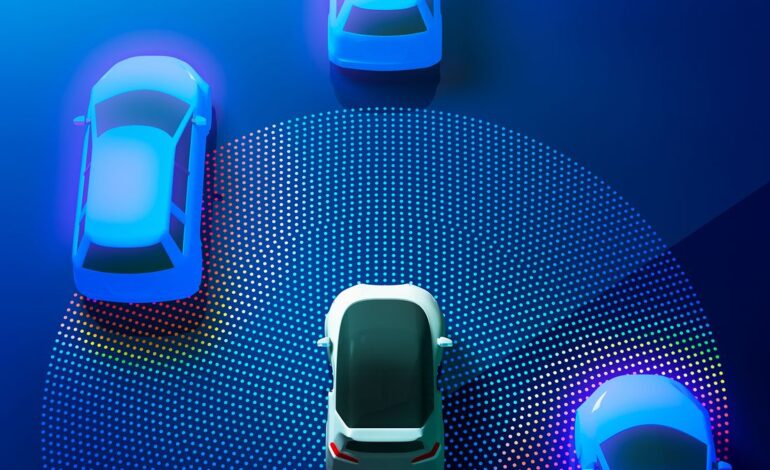
Revolutionizing Roadways: How Self-Driving Cars Use AI-Powered Social Networks
Self-driving cars are on the cusp of a revolution, utilizing AI-powered social networks to communicate seamlessly on the road. This groundbreaking technology promises to enhance safety, efficiency, and the overall driving experience by allowing vehicles to share information in real-time. Explore how this innovative system works, its benefits, and the implications for the future of transportation.
The Rise of Autonomous Vehicles
The development of autonomous vehicles has been remarkable, with self-driving cars now becoming a common sight in many cities. These vehicles, laden with sensors and cameras, rely on artificial intelligence to navigate and make real-time decisions. However, a new advancement is the introduction of an *AI-powered social network* for cars, enabling them to communicate and collaborate.
How AI-Powered Social Networks Work
The AI-powered social network leverages sophisticated algorithms to enable cars to ‘talk’ to each other. This involves sharing data such as speed, direction, and road conditions. By exchanging this information in real-time, vehicles can make informed decisions, reducing the likelihood of accidents and improving traffic flow. This technology operates independently of human input, offering a higher level of efficiency.
Benefits of Vehicle Communication
Implementing an AI-powered social network among autonomous vehicles brings numerous benefits. **Enhanced safety** is a primary advantage, as cars can anticipate and respond to hazards. **Increased efficiency** results from optimized traffic movement and reduced congestion. Additionally, **energy consumption** is minimized as vehicles maintain optimal speeds and routes, contributing to a more sustainable environment.
Future Implications and Challenges
While the technology behind AI-powered social networks is promising, there are challenges to overcome. **Data privacy concerns**, **cybersecurity threats**, and the need for **regulatory frameworks** must be addressed. As automakers and tech companies collaborate, establishing universal standards will be crucial to ensuring the safe and effective deployment of these systems on a global scale.
Conclusão
The integration of AI-powered social networks in self-driving cars marks a significant leap forward in autonomous transportation. By facilitating real-time communication, these networks enhance safety, improve traffic efficiency, and promote environmental sustainability. As the industry continues to evolve, overcoming the associated challenges will be key to realizing the full potential of this revolutionary technology.





